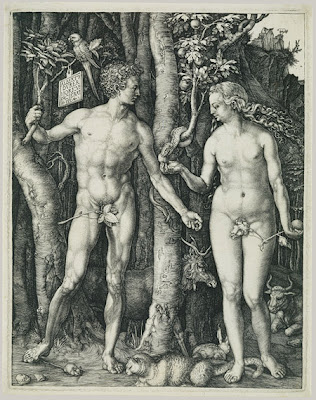[enter to the "Raider March," complete with whip, fedora, and leather jacket]
Greetings, fellow adventurers!
I was in town to do some top-secret protection for the Picasso exhibit down at your museum of Fine Arts, and I heard about your Lenten Wednesday worship theme this year. Come to find out, it is based on a twist of one of my fellow adventurer’s martini orders. Indeed, my British counterpart, Agent 007, always orders his shaken, not stirred. I suppose I’d take mine the same way. I’ve never met Mr. Bond, but we lead a similar lifestyle: secret missions, international travel and intrigue, and the propensity to display calm, wit, and quick thinking in the face of danger (if I do say so myself). He always prefers things a little shaken up, not just stirred around.
But not you. Oh, no. You, on the other hand, have apparently ordered up a life that is stirred, not shaken. It’s a clever little reversal of wording. I suppose it calls attention to your desire to be stirred up by the Holy Spirit into service and courage rather than shaken into doubt and despair. Apparently you even pray for this type of life. That’s pretty admirable, especially to adrenaline junkies like me. In one of your worship services, the rite of confirmation, you even line up your young whipper-snappers up in front of the church to publicly affirm the promises of their baptism. And right there you pray for God’s Holy Spirit to keep them stirred, not shaken. As they are poised on the brink of adulthood—poised to grab hold of the grace that has been handed them by God—you look the challenges of life square in the eye and pray for the help that will keep them faithful.
Come to think of it, you sound like a fairly intrepid outfit that a guy like me might even fit in! And today/tonight you’re considering part of that prayer that I happen to know a little about: guide our life. Since I have a knack for tracking down my prize by following clues and sometimes raw instinct, I thought might be in order for me to swing by and give you a few pointers about good guidance. You see, I rely on guidance of all types: scholarly knowledge I’ve obtained in the academy, cryptic archaeological symbols, legendary oracles, and an internal sense of where danger might lurk. I know a thing or two about how to navigate adventure, believe you me. Maybe I can help you in your adventure to be stirred, not shaken.
Because, let’s be honest: life is an adventure. Whether you’re ranging all over the planet, attempting feats of daring and danger, or whether circumstances require that you live your whole life within a few square miles, life necessarily involves decisions, and those decisions carry with them the air of adventure. Life involves risk, choices, fear of regret, tiptoeing or diving headfirst into the unknown. What to do Friday night? Where to go to college next year? How to raise a family? What job to take? Which retirement facility to inhabit?—the adventurous aspects of life are inescapable. And for people of faith, there is the added dimension of how to live to the glory of God in each and everything you do. It is nice to know you may pray for some type of guidance in the midst of it all.
And it appears your God is not prepared leave you hanging in that department. Look at the ancient Israelites. As you know, I’ve studied their history very carefully. After God delivered them from their slavery in Egypt, God didn’t just slap them on the rear and turn them loose to their freedom. Against all odds, he found a way to guide them out of a hostile, oppressive environment into an even more hostile desert, right through the middle of a huge body of water, and, eventually, into a land God had set aside especially for them. They were dressed for battle action and carried with them the bones of their great ancestor Joseph as a reminder of who they were.
While they journeyed, of course, two pillars guided them: a pillar of cloud by day and a pillar of fire by night. Eventually, when they would obtain the Ark of the Covenant (which, as you know, now sits forgotten in some unmarked box amidst many others somewhere in a government warehouse), the cloud and the fire would rise and fall in the air over the ark. When this cloud would fall over the Ark, the Israelites would set up camp. As soon as it lifted into the air, they knew it was time to move on.
Now, I’ve seen a lot of things on this planet, but I have to say I can’t imagine what that would have looked like. But the Israelites knew it could be trusted. They knew it represented God’s real presence, slogging with them wherever they went.
That’s pretty cool—it’s like some divine GPS device—but what I find most interesting (as a person who likes to get straight to the treasure) is that this long stint in the wilderness was a part of the deal. The wandering is built-in, right from the start. As they get started on this adventure, God is set on leading them a roundabout way. Rather than taking the direct route through the land of the Philistines, God makes them traipse into the wilderness, southward, toward the banks of the Red Sea. And the wandering does not cease once they come out dry on the other side. For a total of forty years they meander through the barren wasteland of the Sinai Peninsula and the northern Arabian Desert before they finally reach where they’re supposed to be. Nevertheless God was with them the whole time, his mysterious pillars of cloud and fire leading the way, but also involved in their own wandering.
I don’t know how you read it, but there are a few things I would take from this account if you’re thinking about guidance. For one, the people of God traveled as a group and were guided as a group. They had leaders that helped mediate the course who struck out on their own occasionally, but the journey of faith was not a “lone ranger” thing. God is clearly interested in guiding a community, not just individuals. To receive God’s guidance, you might not want to stray too far from the desert caravan of your brothers and sisters.
Secondly, wilderness is part of the adventure. In your baptismal journey, you can expect times of wandering and wondering. You can assume there will be days and years you feel lost, miles from where you want to be. You may even feel lost from God. But you should never forget that he has promised to be in the midst of that wandering with you. This is where the sacraments are so important. Tangibility is part of your faith. You’ll need something to hold onto.
Another thing you may want to take from this lesson is to get rid of the idea that every single step of your life has been mapped out by God, and that it’s your job ahead of time to figure out what those steps are. It appears God doesn’t really guide like that, and God isn’t that much of a control freak. People of faith can often get stuck in that trap, though, always waiting for some special secret oracle, some clear signpost that will let them know which path at the fork in the road to take. They worry and wonder about which decision would actually be in God’s will. I mean, sometimes there may be signs, mentors, who can point away. But the danger is getting frozen in your tracks, paralyzed by the thought that your powers of decision may somehow nullify God’s ability to bring good from any circumstance.
There’s one guy who gave some pretty sound advice in this department—I think you may know him. He said, “If you are a sinner, then sin boldly, but let your trust in Christ be stronger, and rejoice in Christ who is the victor over sin, death, and the world.” I believe his name was Martin Luther, and he always had a knack for pointing to the cross.
For that’s really the heart of the matter here. When you Christians are thinking about God’s guidance, about the way through the wilderness, all thinking must begin with that cross. That Jesus…man, was he an adventurer! He thrust himself—body and soul—into his trust in God, and his life and death proved God’s promise to guide his people through any situation. The cross is evidence of God’s ability to redeem any decision we make. It is that guidepost of all guideposts. May I be so bold as to suggest that that the cross is those two pillars—set together—which still lead God’s people, assuring you God is with you at all times, no matter the depth of the danger, no matter the width of your waywardness. Maybe that’s just some crazy archaeologist’s hunch, but I’d run with it. No matter what, it should give you an idea of the form of God’s guidance so that you and all your young whipper-snappers may face life stirred, not shaken.
I suppose our journeying is beginning to look a little different, yours and mine. The nature of my adventure is the recovery of ancient artifacts, the acquisition of rare treasures and secrets. As an archaeologist, my life is committed to the uncovering of truths from the past. The Lost Ark, the Temple of Doom…they all are tokens of by-gone eras. But you, you are called to things ahead. You journey on with the promise of a time yet to come, agents of a kingdom of grace that is being established as we speak.
As the writer to Timothy says, you need to know that you are equipped for every good work. Any adventurer can assure you that in order to be truly guided one must have a place to go. To receive direction, there must be a destination. And that you have! You may walk and wander with the confidence that God will always be guiding you to the place where your gifts participate in the restoration of this world to God through Jesus.
And, just like the ancient Israelites carried with them the bones of their great ancestor Joseph, reminding them of their identity, you travel with the Scriptures in your safekeeping. They are “inspired by God,” as again the writer to Timothy says, “useful for teaching, for reproof…and for training in righteousness.” Let me tell you: don’t forget your own set of ancient texts, and how important those living bones are for your adventure. You may feel sometimes that they burden you down, but don’t ever downplay their ability to guide you and remind you who you are.
Well, it has been with great honor to offer you any words of wisdom tonight. You’ve got your mission as the people of God, rooted in your baptism. I am beginning to recognize that it is far more daring—and, at times, frustrating—than mine ever have been. But also far more exciting, this life of faith. You go forth with a clear vision, drawn ever deeper with your community into God’s redemption of the world. Use whatever gifts you’ve received. And go forth. Boldly make your decisions. Lead the adventure of a lifetime.
Oh, and if you happen to run across any, uh, any snakes—which I hear lurk sometimes in your story—then don’t let them shake you either. Be stirred, stirred to action, ever confident that God has chosen to guide you.
Well, with that, I’m off. If I don't get back to my post, I can see a fifth episode: "Indiana Jones and the Raiders of the Lost Picasso."
The Reverend Phillip W. Martin, Jr.
(as the inimitable Indiana Jones)








